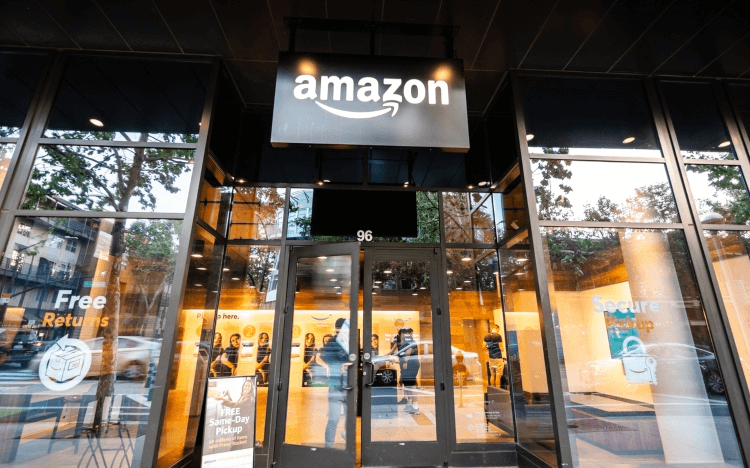If you manage to land an Amazon job interview, you’ll be up against stiff competition. The company regularly recruits from top business schools including Harvard, Stanford, Chicago Booth, Berkeley Haas, and London Business School.
As nerve-wracking as an interview can be, it’s a great chance to demonstrate your passion for the company’s mission, and what you can bring to the team—just make sure you're familiar with Amazon's leadership principles!
Here are five Amazon interview questions you’re likely to be asked—and what your interviewer will be looking for in your answers.
Amazon behavioral interview questions
Whichever role at Amazon you apply to, you can expect to be asked several behavioral questions during your Amazon job interview.
“These behavioral questions will ask about past situations or challenges that candidates have faced and how they handle them,” explains an Amazon spokesperson.
To answer these behavioral questions, Amazon recommends using the STAR method. This acronym stands for situation, task, action, and results, and is a logical way to talk about your past projects and achievements.
“Be ready for follow-up questions, as interviewers will want to dive deep into your experience,” the Amazon spokesperson adds.
Here are five of the most common Amazon interview questions:
1. Tell me about a time when you were faced with a problem that had a number of possible solutions.
2. When did you take a risk, make a mistake, or fail?
3. Describe a time you took the lead on a project.
4. What did you do when you needed to motivate a group of individuals, or promote collaboration on a particular project?
5. How have you leveraged data to develop a strategy?
Read: My MBA In Entrepreneurship Kick-Started My Career At Amazon
©jetcityimage / iStock
Here's what Amazon will be looking for in your answers:
Tell me about a time when you were faced with a problem that had a number of possible solutions.
With this question, the interviewer wants to know how you seek out solutions and handle uncertainty. Since a ‘bias for action’ is listed on Amazon’s website as one of its leadership principles, it’s a good idea to discuss a situation that required you to be decisive.
“Amazon values MBAs who are able to deal with ambiguity, be flexible, show forward thinking, and display resourcefulness and efficiency,” says an Amazon spokesperson.
As with all behavioral questions, it’s important to ensure that your answer explains the outcome of your work as well as the initial challenge and the solution you suggested.
When did you take a risk, make a mistake, or fail?
One of Amazon’s leadership principles is ‘learn and be curious.’ That’s why it’s crucial during an Amazon interview to demonstrate self awareness and highlight your ability to admit—and learn from—mistakes. Make sure you highlight how you grew from the failure as well as your initial response.
Describe a time you took the lead on a project.
Amazon wants its MBA hired to have strong leadership potential. This means it’s important to come to your interview ready to highlight a few projects where you’ve taken the lead. Remember to talk explicitly about the practical outcomes of the project, including any key metrics that demonstrate your success through data.
What did you do when you needed to motivate a group of individuals, or promote collaboration on a particular project?
This question is another test of your leadership potential. Your MBA experience could be especially helpful here, as you’ll have likely been required to collaborate on a group project with a diverse set of peers.
Discuss with your interviewer what the main challenges were, how you encouraged collaboration, and how you found common ground to keep the group motivated.
How have you leveraged data to develop a strategy?
Amazon wants MBA hires who are data-savvy, and can draw insights from large quantities of data.
“An interest in technology is values, which can be demonstrated by academic or work experience, programming experience, or participation in tech-focused MBA projects or clubs,” an Amazon spokesperson explains.
Use this question to talk about a time when you wrangled with a large data set to create a strategy, and emphasize the data-driven storytelling you used to concisely communicate your insights to others.
Amazon technical interview questions
Some MBA roles at Amazon may require strong technical understanding in a certain area—such as software development or machine learning.
According to Amazon’s website, technical interviews typically involve coding exercises and system design white boarding exercises.
The questions you’re asked in a technical interview will vary depending on the role, and it’s a good idea to confirm with your interviewer which skills and topics they would like to cover.
Landing a job with Amazon is highly competitive, and the company uses quite a rigorous recruitment process—but don’t let this put you off from applying. By understanding the company’s values, you can make the most of your prep time and work out which experiences and abilities to showcase.
Overall, leadership potential, level-headed and timely decision-making, and a good understanding of how to leverage data are the most important traits you can highlight in your Amazon interview.
Next Read:
Amazon's MBA Recruiter Tells You How To Get Hired
RECAPTHA :
37
1a
2e
c2









